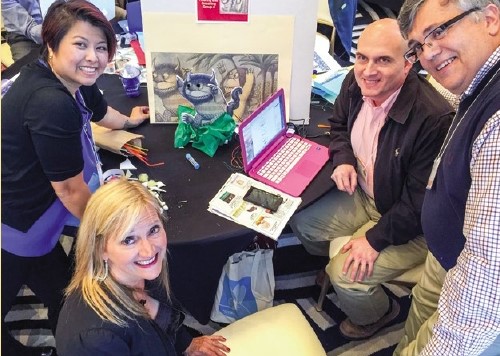Two Fundamental Facets to Implementing a STEAM Model
May 01, 2017

Two aspects of implementation were especially important to the STEAM model in our school district.
Incubator Projects
Building out the curriculum relies to some extent on incubator projects. An incubator is a place to safely test new ideas in a controlled setting for the purpose of creating a scalable sustainable solution.
Beginning this August, Python programming will be added to the grade 8 curriculum through a mandatory rotation. In February, we began to offer the curriculum in an eight-week after-school incubator project. Current 8th-grade students are participating in the incubator, led by graduate students from Carnegie Mellon University and a software developer from Google Pittsburgh.
Our high school student Python programming team will act as mentors to the new class. A computer science consultant will observe each session and, based on observations of students and input from student mentors, she will make adjustments to the course and build appropriate assessments before implementation in the fall. The teacher assigned to teach the course this fall has joined the incubator to learn with the students, then will attend a summer Python course at Carnegie Mellon University to gain additional expertise.
Partnerships
We did not build this model alone. We relied heavily on local and national experts. We sought the advice of professors and researchers from Carnegie Mellon University, the Learning Research Development Center at University of Pittsburgh, the MIT Media Lab, the MIT App Inventor Team, the Create Lab at Indiana University and others.
We received support and guidance from the Grable Foundation, Digital Promise: League of Innovative Schools, Allegheny Intermediate Unit 3, the Arts Education Collaborative, nonprofit organizations and local businesses. Partnerships, our school board and community support have been essential elements to our success.
Advertisement
Advertisement
Advertisement
Advertisement



